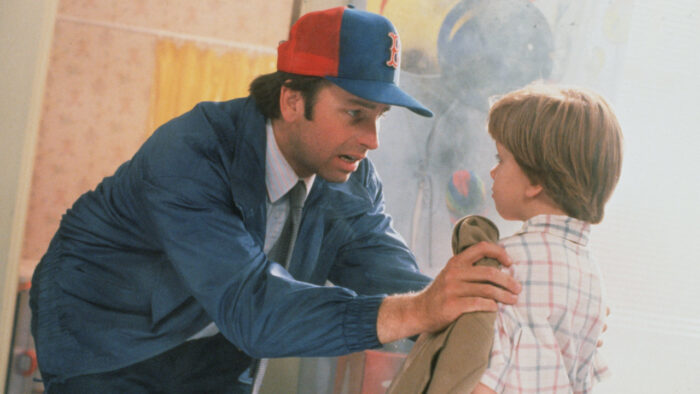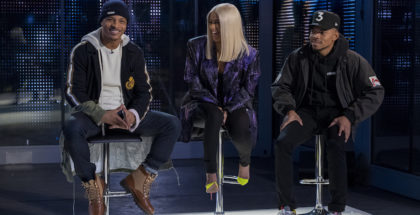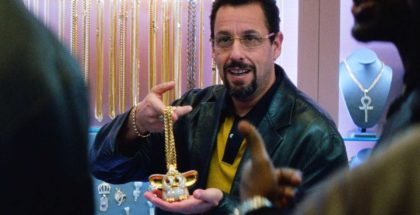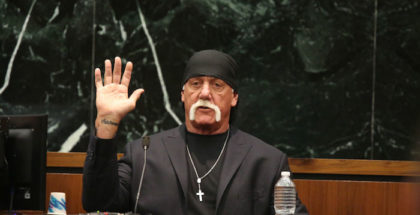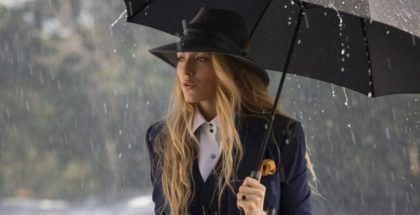The 90s On Netflix: Problem Child (1990)
Review Overview
Slapstick
5Satire
3Squelch
1Mark Harrison | On 19, Mar 2021
Director: Dennis Dugan
Cast: Michael Oliver, John Ritter, Amy Yasbeck, Michael Richards, Jack Warden
Certificate: PG
Watch Problem Child online in the UK: Netflix UK
Do you remember the 1990s? Mark does. In this column, he flashes back to the golden decade of our childhood. From family-friendly films to blockbusters we shouldn’t have been watching, get ready for a monthly dose of nostalgia, as we put down our VHS tapes and find out whether the 90s on Netflix are still Live & Kicking.
“You’ve adopted Satan.” 1990’s Problem Child lives in infamy as the film that Max Cady enjoyed so loudly while puffing on a noxious cigar in Martin Scorsese’s remake of Cape Fear. The choice of family cinema outing frankly says as much about Nick Nolte’s character as Robert De Niro’s raucous laughter does about Cady’s mania. Looking at it in the 1990s context, though, Scorsese chooses a hit comedy from the previous year whose characters also happen to include an anxious dad contending with a maniac.
In Problem Child, Junior (Michael Oliver) is a precociously violent 7-year-old living in an orphanage. He terrorises the nuns who look after him, he writes to the famed Bow-Tie Killer (Michael Richards) as a pen-pal, and he’s gone through more than 30 pairs of adoptive parents. The latest victims are troubled couple Ben (John Ritter) and Flo (Amy Yasbeck), who endure a catalogue of disasters. While Flo largely wants the social status of motherhood, it’s Ben who bears the brunt of rituals such as camping trips, birthday parties and baseball games gone horribly, horribly wrong.
Pitched somewhere between Dennis The Menace and The Omen, this one winds up being a little dark for a PG comedy, but that’s because it was designed that way. The premise came from an LA Times article about a married couple suing an adoption agency for not disclosing that their foster son had severe mental health issues and violent tendencies. Screenwriters Scott Alexander and Larry Karaszewski pitched the film as a dark comedy, parodying films such as Mr Mom and Three Men And A Baby, but squarely aiming for an adult audience.
20th Century Fox, Warner Bros, Columbia, and Disney all turned the script down before Universal greenlit it and, for some reason, decided to make it into a more family-friendly films. Accordingly, the film has a dark and violent sense of humour that was tamped down into something more juvenile during principal photography and post-production reshoots, but the emerging cynicism of the early 1990s remains prevalent.
We’ve written in this column before about how Kindergarten Cop is a cop thriller with family-friendly comedy elements, and that’s a disconcerting mix. Released the same year, Problem Child is a PG comedy with misanthropic tendencies, and the Schwarzenegger film is a masterclass in straddling different tones by comparison.
In a role that was originally earmarked for a pre-Home Alone Macaulay Culkin, Oliver plays Junior just fine, because the register of his performance (and scratchy, smart-aleck narration) would suit the film had it been R-rated instead of PG. There’s something to be said for the much-missed Ritter here too, making the guileless, thankless dad watchable by sheer force of likeability.
With all the sharp edges filed off, the blunt malevolence of this one left to marinate in studio-sanctioned saccharine squelchiness, the film is a real chore to watch. At one point, Yasbeck gets off with Richards while, in the next room, Ritter contemplates smothering their foster kid with a pillow. Episodes like this are at least uniquely nasty, but any comedic value has been Bowdlerised beyond recovery.
Depressingly, the studio’s meddling paid off, scoring Universal a huge hit despite everyone who made it anticipating a major flop. Alexander and Karaszewski have talked of how the poor quality of the film still damaged their stock as screenwriters and how they had to take a job on the shotgun sequel, which was rushed out before Oliver got visibly older. Deliberately setting out to make “a John Waters film for kids”, they wrote even more poor-taste and gross-out gags into 1991’s Problem Child 2, which didn’t repeat the first film’s box office success.
The screenwriters went on to better things later in the decade, including off-kilter biopics Ed Wood and Man On The Moon. Elsewhere, future Adam Sandler collaborator Dennis Dugan bagged his directorial debut after a meeting where he reportedly jumped on a coffee table while pitching to executives. In the film itself, the decade’s toothless corporate-backed overpowers everything else. Fortunately for Dugan, he’d find greater success pairing up with Adam Sandler on films including 90s On Netflix hall-of-famers Happy Gilmore and Big Daddy.
Comfortably the most unlovable film we’ve ever covered in this column, Problem Child gives birth to the worst kind of studio comedy the 1990s had to offer. For all the film’s enforced fun and chaos, it’s been sterilised from a great height by the studio. Problem Child’s fans will sigh about how they don’t make them like this anymore, but looking back, the slapstick is weak and unoriginal, and the satire has been neutered for family viewing. At least Max Cady liked it.
Next Time on The 90s On Netflix…
“Life will go on, we will prevail.”
Problem Child is available on Netflix UK, as part of an £9.99 monthly subscription.


